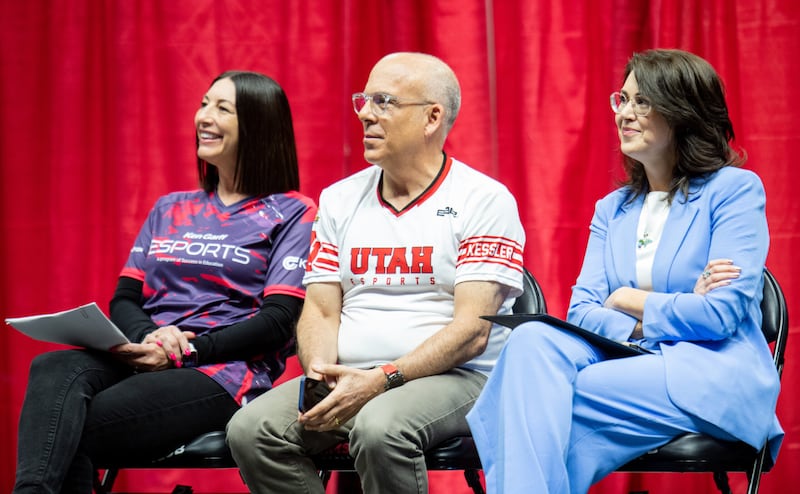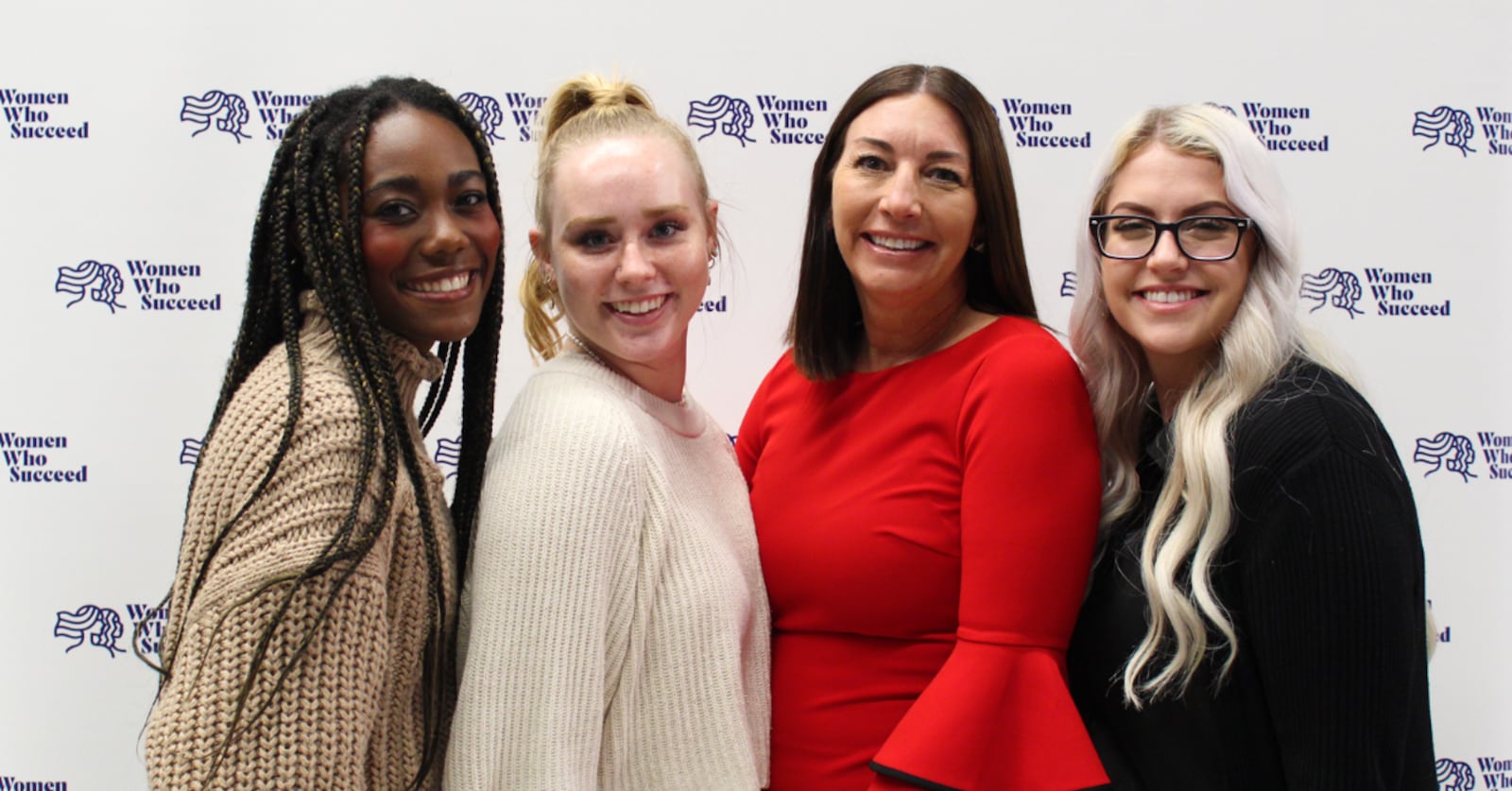In Utah, businesses aren’t just entities of commerce; they are integral proponents of a healthy, collaborative community. Utah enterprises also showcase an unwavering belief in the power of education.
Companies like Beehive Meals, for example, donate food to public schools. In November 2022, the Utah Jazz partnered with Mark Miller Subaru to donate almost $30,000 to renovate West Lake STEM Junior High’s computer lab. The Utah Adopt-A-School program exists to connect businesses with schools for sponsorship and learning opportunities.
Through these examples and many more, Utah’s volunteerism culture shows up as strong support for its education sector.
Shared success
The Utah Adopt-A-School program launched two years ago and uses an online portal to connect for-profit companies with schools that might have intersecting needs. Some of the program’s “success stories” predate the initiative and helped establish the idea—for example, Chevron operates a refinery near Salt Lake City and routinely donates money to the nearby Davis School District.
MarketStar is also featured for its role in creating programs like the Skill Up High School Sales Skills Challenge, which focuses on teaching teens sales and encouraging a career in technology. The company’s Pack the Pantry program, meanwhile, provides basic groceries and food to students in need.
“Based on the principles of volunteerism and service, partnerships with Utah’s education system ensure the collective success of communities, industries and individuals in this inclusive, proactive industry-with-education approach,” the Adopt-A-School website reads.
In just a few easy steps, companies can sign up and browse a list of local schools’ specific needs. After schools approve connections with businesses, the two can begin working together to create lasting benefits.
Another company utilizing the program is the Salt Lake City-based railroad company Stadler U.S. Inc. In partnership with Salt Lake City School District, Salt Lake Foundation, Salt Lake Community College (SLCC) and Talent Ready Utah, Stadler “offers a youth apprenticeship adopted from the Swiss model of apprenticeship,” according to the Utah Adopt-A-School website. Students from Salt Lake City School District split their time between the classroom and Stadler, earning credit toward an Associate of Applied Science degree from SLCC. Stadler also provides students with mentoring and a system of support.
“With Utah Adopt-A-School, businesses have a unique opportunity to utilize Utah’s education system as a tool for workforce development,” reads a February 2022 press release from Gov. Spencer Cox’s office announcing the plan.

Giving through food
Beehive Meals—a Layton, Utah-based company that preps, seals and delivers frozen freezer meals—picks a new school each month and donates food to all of its teachers, staff, office staff and janitors.
“We’ve had PTAs reach out to us in the past, and our meals fit really well with teachers. [They’re] able to put something in [the crockpot] in the morning before they go and work a long day,” says Beehive Meals Co-Founder and CEO Allyse Jackson.
As they were running that program, Jackson says, Utah first lady Abby Cox got in touch about her Show Up for Teachers program and opportunities to collaborate. At the Show Up for Teachers conference in July 2023, Beehive Meals donated 100 sets of five meals. They also held a raffle for schools to win a set of meals for each educator and staff member in the entire school. In total, she says, they donated about $200,000 to 18 schools in 2023.
Beehive Meals is now launching a charitable effort called One Big Family, which will encourage other corporations and foundations to magnify their efforts and reach more schools in the coming years.
“As a small business where my husband and I are the owners, we own 100 percent of the company, so we don’t have to go through several layers to make decisions,” Jackson says. “So it’s really been something we want to do … that’s the cool part of owning a small business.”
Jackson notes that the pandemic helped her business grow while the education sector struggled. That prompted some of her desire to give back and support teachers within her community.
“Teachers and schools have been so negatively impacted by the pandemic and COVID-19,” Jackson points out, noting that her own kids experienced challenges due to lockdowns. “We’re able to kind of see that firsthand with the teachers, so it’s something that we just kind of feel like we want to be connected to.”
The road to higher education
This year marks 20 years since the Success in Education nonprofit launched as a project of the Garffs, a family famous for their car dealerships across the West. The project aims to help high school students create and follow a game plan for after their higher education concludes.
Since its creation in 2004, Success in Education has grown from being a $500,000 organization in 2012 to operating a $3.6 million budget in 2022, with several key programs focusing on different areas of student interest and needs.
Success in Education programs impact schools across the state, according to a map on their website. The Road to Success program incentivizes daily reading. Another of their programs, Keys to Success, aims to provide high school students with what they need to apply for college and meet important deadlines—all through an app.
Both programs take advantage of a critical concept in education: gamifying the process.
“We have about 140,000 downloads on the app. Students participate in a self-reflection interest survey, and the app tells them which careers would be good for them,” says Success in Education VP Erin Trenbeath-Murray. “There’s also a ‘reality check’ that asks if you want a house and a cellphone and how much you would need to make.”
After that, the app tells users which universities offer the majors they’re most interested in. It also allows them to apply for FAFSA directly through the app.
“Every time they complete a step, they get points, and every month, they get rewards from the points. It could be a movie or Chick-fil-A,” Trenbeath-Murray says, pointing out that local businesses often donate, giving the program highly impactful connections to the community.
About two years ago, Trenbeath-Murray says, the Success in Education team amped up its incentives, got rid of glitches and did focus groups to improve the Keys to Success application. They also started partnering with the Utah College Application Month in October, attending events at many Utah high schools to help encourage students to apply to college.
A 2021 annual report from the Utah System of Higher Education noted the success of this collaboration, stating the commissioner’s office partnered with Keys to Success to develop a college application checklist embedded in the app that provided students with an interactive way to navigate the college selection process. According to the report, this resulted in the creation of 5,218 new accounts in October 2021.
The partnership with the state led to a major growth period for Success in Education. “Then it just skyrocketed,” Trenbeath-Murray says.
Beyond the classroom
Success in Education programs don’t stop there. The Ken Garff Esports program creates esports clubs in schools where students can join and connect their academic work to gaming, participate in tournaments across the state and meet others. The program focuses on encouraging students to pursue careers in computer programming and other forms of digital media.
The foundation also holds small, one-off events like STEM fairs that promote science and technology education among students. There have been fly fishing events encouraging students to reconnect with nature, Code to Success programs emphasizing computer science and workshops promoting leadership skills. The impact has been large enough that the Utah System of Higher Education has included its partnership with the foundation as a major focus in past strategic plans for growth and access, naming the Keys to Success app as an important driver for access to students.

The final program run by Success in Education is Women Who Succeed, which partners young high school- and college-aged women with adult mentors to help them navigate their education and early careers.
“Our No. 1 priority was to get high school young women on a track to not only go to college but also to complete college,” Trenbeath-Murray says of the program’s origins. “We’ve set up 55 internships and have just over 700 or 800 young women that have been mentored, all of whom went to college and had passing grades.”
Trenbeath-Murray says she’s also seen major growth in adult participation. Today, the program has 165 mentors—a number that far surpasses the expected 10-15.
The program also focuses intensely on communities outside major economic hubs. Advertising Women Who Succeed through the Keys to Success application, early access to program applications goes out to students in rural and Indigenous schools before being made available to young women statewide later on.
“If we as businesswomen in the community can help mentor, guide, lead and love these young women, we all succeed,” says Laura Peifer, a Women Who Succeed mentor.

